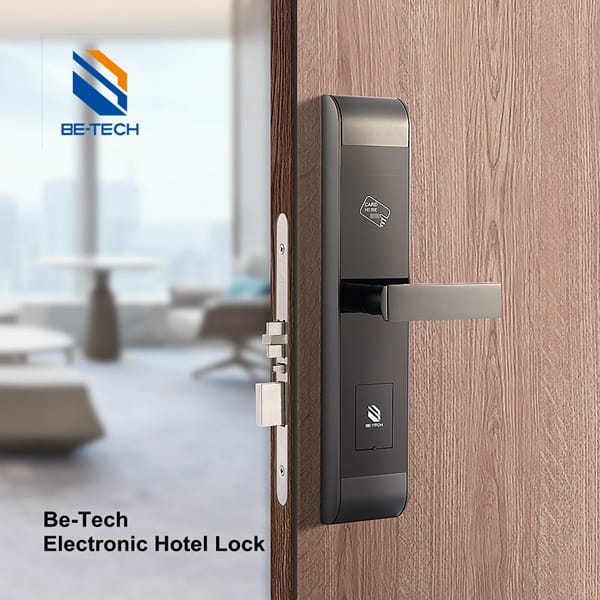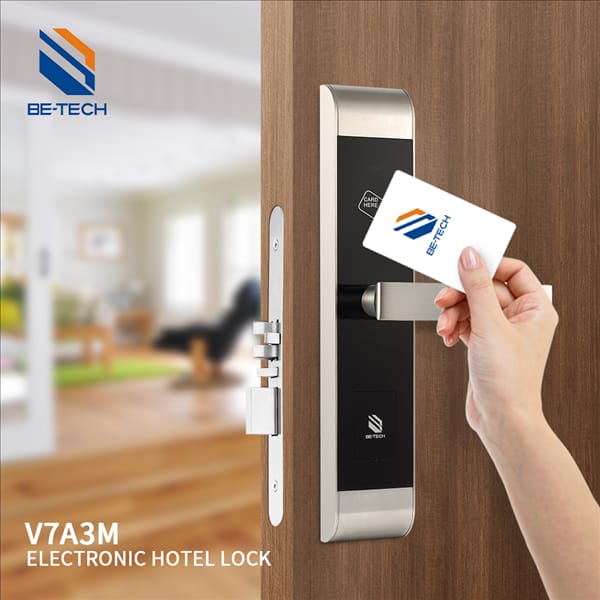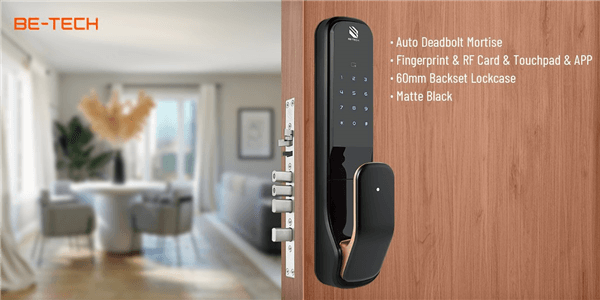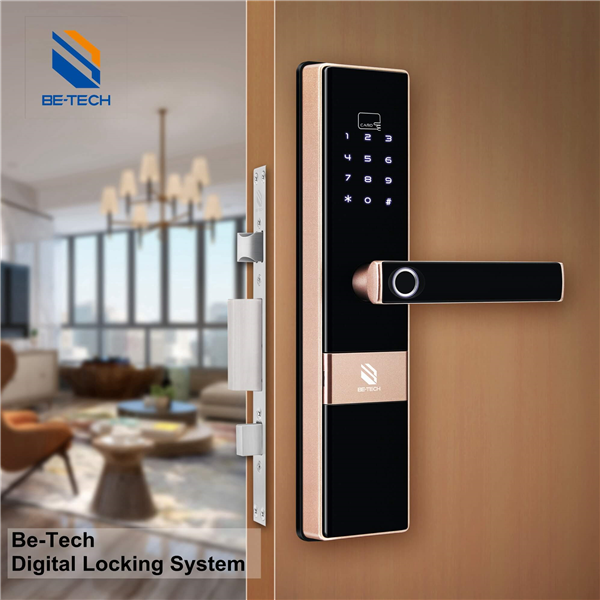In the hospitality industry, first impressions are everything. A guest’s experience begins the moment they arrive at your hotel and continues until they check out. Every touchpoint matters, and hotel door locks are no exception. A smooth, secure, and hassle-free entry experience is crucial for guest satisfaction, security, and the overall efficiency of your hotel operations.
While modern hotel door locks are designed for durability and reliability, they require regular maintenance to function optimally and withstand the demands of daily use. This comprehensive guide will provide you with a practical roadmap to maintaining various types of hotel door locks, addressing common issues, and implementing advanced security measures.
Understanding Different Types of Hotel Door Locks
Before diving into maintenance practices, it’s essential to understand the different types of hotel door locks available and their unique characteristics. This knowledge will enable you to tailor your maintenance approach to the specific needs of each lock type:
- Electronic Keycard Locks: These locks utilize keycards embedded with RFID technology. Guests simply tap their card against the lock to gain entry, offering a quick and efficient check-in experience. RFID technology is highly secure, making it difficult for unauthorized individuals to replicate access cards.
- Magnetic Stripe Card Locks: This technology uses a magnetic strip on the keycard to store guest access information. While a common choice in the past, these locks are becoming less prevalent due to the ease of demagnetization.
- Digital Keyless Entry Locks: With mobile app integration, guests can unlock their doors using their smartphones. Mobile app hotel locks enhance convenience and reduce the risk of lost or forgotten keys.
- Biometric Hotel Locks: These locks use unique biological traits, such as fingerprints or facial recognition, to grant access. They provide an unparalleled level of access control but often come with a higher initial investment.
Keyless Entry With Mobile Devices
Mobile key access is rapidly gaining popularity in the hospitality industry, allowing guests to use their smartphones as their room key. Hotels can offer this functionality through their branded app or integrate with third-party mobile key providers. [Please note that these insights about mobile key access popularity are not from the provided sources and might need independent verification.]
Benefits of Mobile Key Access:
- Convenience: Guests can bypass the front desk and go straight to their room upon arrival.
- Reduced Contact: Mobile keys offer a contactless entry experience, which is increasingly important in a post-pandemic world. [Please note that the connection between reduced contact and a post-pandemic world is not from the provided sources and might need independent verification.]
- Enhanced Security: Mobile keys are difficult to duplicate and can be easily deactivated if lost or stolen.
Smart Locks and Integration
Smart locks represent the cutting edge of hotel door lock technology. These locks can connect to the internet and integrate with hotel management systems (PMS), enabling remote access control, real-time monitoring, and automation features.
Benefits of Smart Lock Integration:
- Streamlined Operations: Staff can manage guest access, track room status, and generate reports efficiently.
- Improved Security: Real-time alerts can be triggered for unauthorized access attempts.
- Personalized Guest Experience: Hotels can customize access privileges and offer additional services through the integrated system.
Essential Hotel Door Lock Maintenance Practices
Regular maintenance is the key to extending the lifespan of your hotel door locks and ensuring their continued functionality. Here are essential practices for keeping your locks in top condition:
- Cleaning and Inspection: Regularly inspect locks for signs of wear and tear, dirt, or debris. Clean the exterior surfaces with a soft cloth and a mild cleaning solution. Avoid using abrasive materials that could damage the finish.
- Lubrication: Periodically lubricate the moving parts of the lock, such as the latch bolt and deadbolt, with a high-quality lubricant designed for door locks. This will ensure smooth operation and prevent sticking.
- Battery Replacement: If your locks are battery-powered, replace batteries according to the manufacturer’s recommendations. Most electronic hotel door locks offer low battery alerts, allowing staff to replace batteries proactively.
- Keycard and Reader Maintenance: Ensure keycards are clean and free of scratches or damage. Clean the card reader slot with compressed air or a soft brush to remove dust or debris that could interfere with card reading. [Please note that this information about cleaning the card reader slot is not from the provided sources and might need independent verification.]
- Firmware Updates: Smart locks may require firmware updates to enhance functionality and address security vulnerabilities. Check with your lock supplier for update instructions. [Please note that this information about firmware updates is not from the provided sources and might need independent verification.]
Troubleshooting Common Problems
Even with regular maintenance, hotel door locks can encounter issues. Here are some common problems and troubleshooting tips:
- Keycard Not Reading:
- Check the keycard for damage or dirt.
- Clean the card reader slot.
- Re-encode the keycard. [Please note that this information about re-encoding the keycard is not from the provided sources and might need independent verification.]
- Lock Not Latching Properly:
- Check the alignment of the latch bolt and strike plate.
- Lubricate the latch bolt.
- Tighten any loose screws.
- Battery Drain:
- Ensure you are using high-quality batteries.
- Check for any electrical shorts or malfunctions.
- Consider environmental factors (extreme temperatures) that could impact battery life. [Please note that this information about environmental factors impacting battery life is not from the provided sources and might need independent verification.]
Addressing Common Hotel Door Lock Issues
Here are some common issues and how to address them:
- Guest Locked Out: Establish clear protocols for handling guest lockouts. Ensure staff members have access to master keys or override codes to unlock doors in emergencies.
- Lost or Stolen Keycards: Immediately deactivate the lost or stolen keycard to prevent unauthorized access. This can typically be done through the hotel management system.
- Lock Malfunction: Train staff on basic troubleshooting steps for common lock problems. Have a system in place for reporting and addressing more complex issues that may require professional repair. [Please note that this information about staff training is not from the provided sources and might need independent verification.]
Emergency Access Procedures
Every hotel should have well-defined emergency access procedures for situations involving door lock malfunctions or guest lockouts.
- Master Keys: Designate authorized personnel with access to master keys, ensuring secure storage and tracking.
- Override Codes: Electronic locks often have override codes that can be used by authorized staff. These codes should be kept confidential and changed regularly.
- Emergency Contact: Clearly display emergency contact information for maintenance or security personnel in case staff members are unable to resolve the issue. [Please note that these insights on Emergency Access Procedures are not from the provided sources and might need independent verification.]
Advanced Maintenance and Security Measures
Hotels seeking to take their security and maintenance practices to the next level can implement these advanced measures:
- Preventative Maintenance Schedules: Establish regular preventative maintenance schedules for all door locks. This includes inspections, cleaning, lubrication, and battery replacement at set intervals.
- Integration with Security Systems: Integrate electronic door locks with the hotel’s overall security system for centralized monitoring and control.
- Audit Trail Analysis: Regularly review audit trails to identify unusual access patterns or potential security breaches.
Cybersecurity for Smart Locks
As hotels increasingly adopt smart locks, cybersecurity becomes paramount.
Here are essential steps to protect your smart lock system:
- Strong Passwords: Use strong, unique passwords for all administrative accounts and change them frequently.
- Firmware Updates: Keep the lock’s firmware up-to-date to patch security vulnerabilities.
- Network Security: Ensure that the hotel’s Wi-Fi network is secure and that smart locks are connected to a protected network segment. [Please note that these insights on Cybersecurity for Smart Locks are not from the provided sources and might need independent verification.]
Partnering With a Reliable Hotel Door Lock Supplier
Choosing the right hotel door lock supplier is crucial for ensuring product quality, reliable support, and long-term value.
Key Criteria for Selecting a Supplier:
- Experience and Expertise: Look for a supplier with a proven track record in the hospitality industry and a deep understanding of hotel security needs.
- Product Quality and Durability: Choose locks made from high-quality materials and designed to withstand heavy use in a hotel environment.
- Integration Capabilities: Ensure that the locks can integrate with your existing property management system and other security technologies.
- Customer Support and Maintenance: Opt for a supplier that offers comprehensive customer support, training, and maintenance services.
- Innovation and Technology: Choose a supplier that is at the forefront of hotel door lock technology and offers innovative solutions, such as mobile key access and smart lock integration.
Consider Be-Tech Lock, a leading manufacturer of smart locks, as a potential supplier. Be-Tech is committed to producing high-quality home and hotel locks, focusing on the development of advanced locking solutions for the hospitality sector.
Conclusion
Maintaining hotel door locks is not merely a maintenance task but an investment in guest safety, satisfaction, and the overall success of your hotel. By implementing the practices and strategies outlined in this guide, you can ensure that your door locks function flawlessly, provide a seamless guest experience, and enhance the security of your property.
Don’t wait for problems to arise. Take a proactive approach to hotel door lock maintenance, partner with a reputable supplier, and stay informed about the latest advancements in hotel security technology. Your guests will thank you for it!
Ready to Upgrade Your Hotel’s Door Locks? Contact a trusted hotel door lock supplier like Be-Tech Lock today to explore their range of solutions and find the perfect fit for your property.








